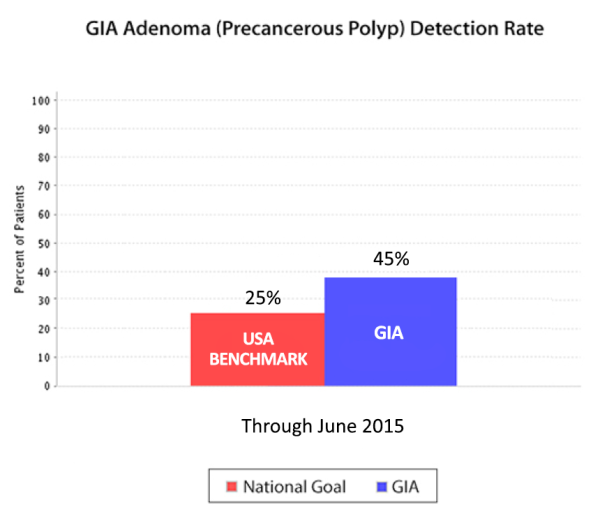Before buying a new car, many people spend lots of time reading professional reviews, visiting dealerships and talking to friends and family members with the same car to see how they like it. They want to be sure their money is going into a top-quality vehicle.
But are we as careful when it comes to our health? Sadly, most of the time we’re not.
Take colonoscopies, for example. A colonoscopy is a procedure where a physician examines your large intestine (colon) by using a flexible tube that is inserted into the rectum. A tiny video camera at the tip of the tube allows the doctor to view the inside of the entire large intestine. During the procedure, the physician can remove any unusual growths, known as polyps. Finding and removing polyps is important because they can turn into cancer over time. Research has proven that colonoscopies save lives, so there is no excuse good enough to skip having the test.
Some people, however, don’t get a colonoscopy because they don’t want to do the prep, which involves not eating for a day and taking laxatives to clean out the colon before the exam. Some avoid the test because they are afraid, can’t afford it or think they don’t have time.
A colonoscopy takes about 30 minutes or less, and you’re put to sleep during the procedure so there is little or no pain involved.
If you’re ready to schedule your colonoscopy, that’s good news. Now, I ask that you treat your colonoscopy as if it were as important as buying a new car. Your primary care physician may refer you to a specialist. Even so, spend some time researching different doctors and practices and learn about their quality metrics. Some questions to ask:
- How often do they find and remove precancerous polyps during colonoscopies?
- How often are they able to view the entire large intestine, referred to as performing a complete colonoscopy?
- How do patients rate the practice?
- Would patients recommend the practice to their friends and family?
Look for answers to those questions on the provider’s website or call and ask to speak with someone who can tell you more about the practice. It should be a big red flag if a practice is unwilling or unable to answer those questions.
Here at GIA, we are proud of our performance and provide that information on our website at https://gihealthcare.com/quality-performance-metrics/. For example, through screening colonoscopies GIA physicians detect and remove significantly more precancerous polyps than national benchmark goals for both men and women.

Adenoma Detection Rate: GIA physicians detect and remove significantly more precancerous polyps through screening colonoscopies than national benchmark goals for both men and women. An adenoma is a precancerous colon polyp as opposed to a benign polyp, which is not precancerous. The American Society for Gastrointestinal Endoscopy sets national standards for GI practices in detection of adenomas. This national goal is to detect and remove adenomas in 25% of men and women combined. Gastrointestinal Associates surpasses that goal. In the first half of 2015, GIA physicians detected and removed adenomas in 45% of screening colonoscopies.
Our physicians perform approximately 15,000 screening colonoscopies each year – more than any other GI practice in the region, and our patients are pleased with the job we’re doing. Colon cancer is the second-deadliest cancer but is preventable and treatable when diagnosed early.
When it comes to your colonoscopy, quality matters. Be sure yours is performed by an experienced, qualified physician.

